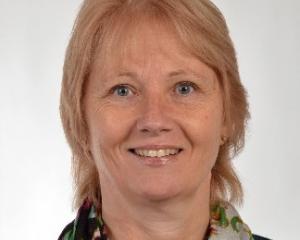More than 40 long-term ACC claimants in Otago have been asked to undergo further medical assessments or other tests in recent months, in what critics say is a "return to the bad old days" of removing claimants from the scheme.
Acclaim Otago, an ACC claimant support group, says about 20 of its members in Otago have also had their weekly compensation payments stopped for claimed "non-compliance" with ACC requirements in recent months.
Seven claimants had also had payments reinstated after appealing through ACC's review system.
An ACC "executive leadership team issues" paper, prepared last year by Phil Riley, the long-term claims project lead, and obtained under the Official Information Act, said moves were being made immediately to "fast-track improvements", and to take more of a "tough love" approach to some clients, given rising ACC costs and "increased pressure" on the scheme's sustainability.
Asked to comment about claimed "exiting" pressures and ACC finances, ACC media adviser David Balham said, in respect of the finances, that ACC board chairman John Judge had made it clear ACC had to change if it was to remain viable.
"This is being done with a combination of increasing revenue, through levies, and decreasing expenditure, through ensuring that ACC assistance goes only to those who are entitled to it," Mr Balham said.
Denise Powell, the president of Acclaim Otago, an ACC claimant support group, says she was "gobsmacked" at the extent of the medical assessment and other testing requests and aggressive "non-compliance" action against many of the group's 80 members, revealed in emails from group members.
In response to an email query from her, she had received emails from 41 members in a single day last week after the Otago Daily Times requested information from the organisation about recent experiences with ACC.
Mrs Powell is a member ACC's Consumer Outlook Group (COG), a national liaison body which brings together ACC consumers and ACC senior managers.
She would now help to prepare a comprehensive report on recent experiences by long-term claimants in Otago, to be considered by COG, perhaps at its March or April meeting.
Key issues raised by Acclaim members had included the management of many Dunedin long-term claimants from ACC offices in Alexandra and, more recently, Timaru, and some interactions with members of the ACC's recently-established Recover Independence Service unit based at those two centres.
Also highlighted in the responses had been privacy issues.
Some claimants had been put under pressure to sign a blanket agreement for their medical files to be accessed by ACC at any stage, although some claimants preferred to give their informed consent on a case-by-case basis, where they were advised what was happening.
Peter Sara, a Dunedin lawyer who has long dealt with ACC cases, said he had noticed a 30% increase in his workload since about March last year.
He was concerned there had been "a return to the bad old days" of the late 1990s when ACC management had sought to "exit" many long-term claimants from ACC coverage.
Some of ACC's recent actions, including requiring long-term claimants to undergo repeated medical assessments, were "bizarre", given the need to rehabilitate people with serious injuries, he said.





